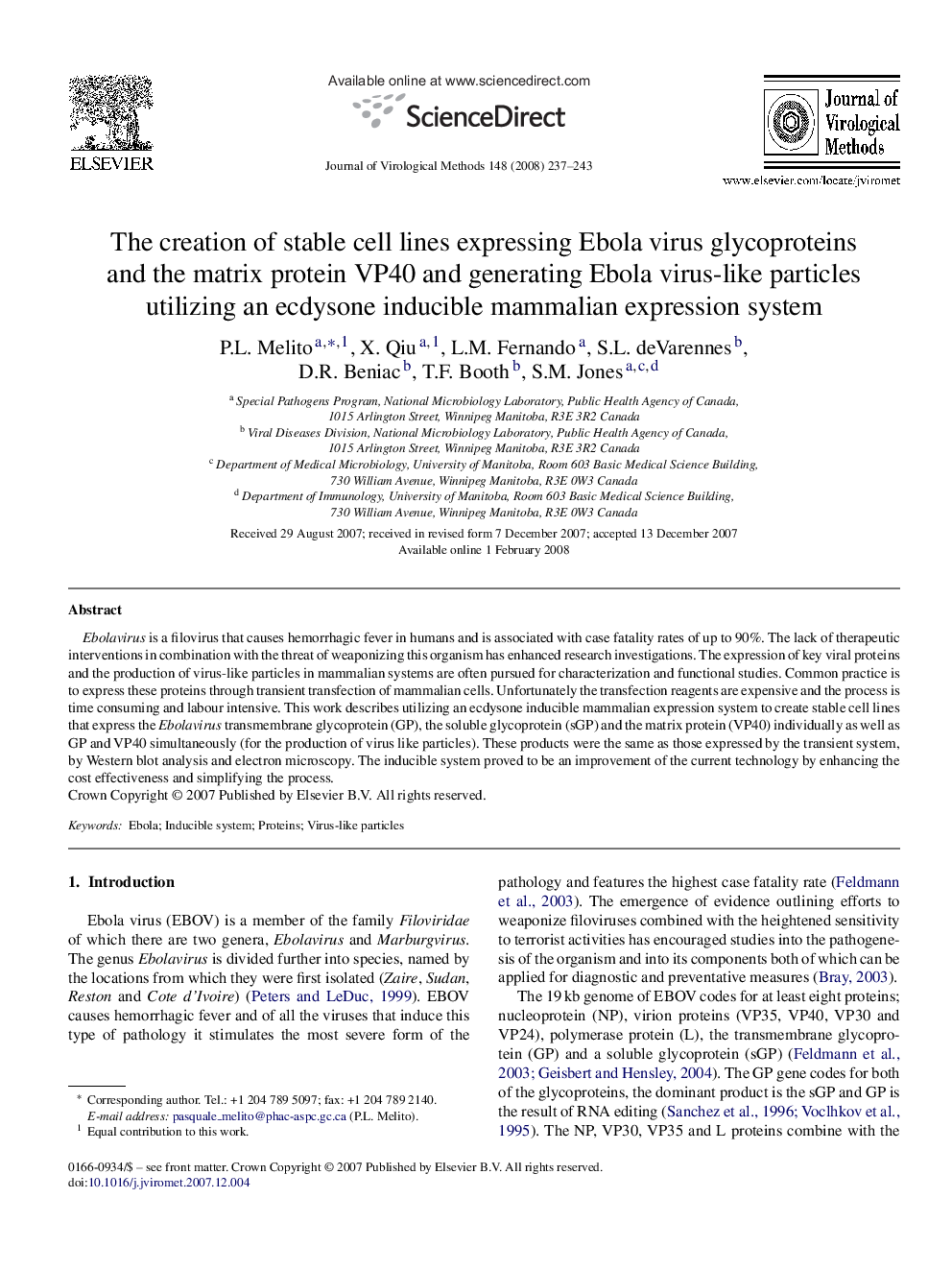| Article ID | Journal | Published Year | Pages | File Type |
|---|---|---|---|---|
| 3407938 | Journal of Virological Methods | 2008 | 7 Pages |
Ebolavirus is a filovirus that causes hemorrhagic fever in humans and is associated with case fatality rates of up to 90%. The lack of therapeutic interventions in combination with the threat of weaponizing this organism has enhanced research investigations. The expression of key viral proteins and the production of virus-like particles in mammalian systems are often pursued for characterization and functional studies. Common practice is to express these proteins through transient transfection of mammalian cells. Unfortunately the transfection reagents are expensive and the process is time consuming and labour intensive. This work describes utilizing an ecdysone inducible mammalian expression system to create stable cell lines that express the Ebolavirus transmembrane glycoprotein (GP), the soluble glycoprotein (sGP) and the matrix protein (VP40) individually as well as GP and VP40 simultaneously (for the production of virus like particles). These products were the same as those expressed by the transient system, by Western blot analysis and electron microscopy. The inducible system proved to be an improvement of the current technology by enhancing the cost effectiveness and simplifying the process.
